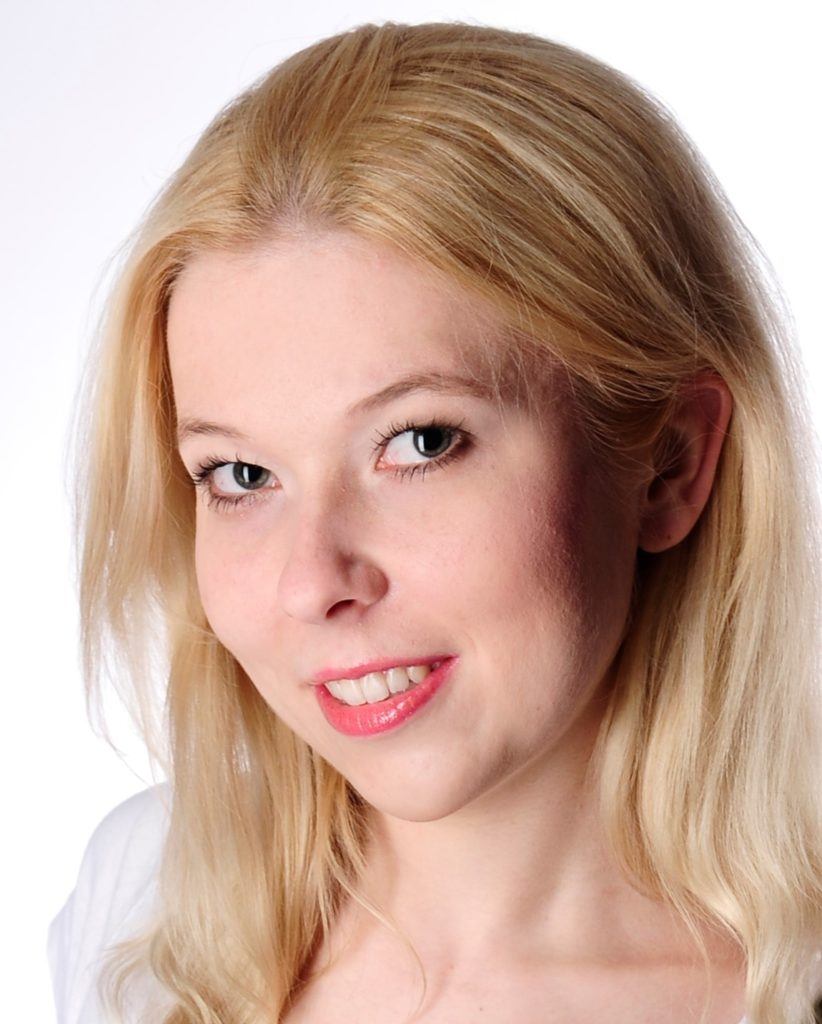People of PI: Math maven Kasia Rejzner
If society boosts confidence in math, women will come to (and more importantly, stay in) the field, says Emmy Noether Visiting Fellow Kasia Rejzner.
Take a self-guided tour from quantum to cosmos!
If society boosts confidence in math, women will come to (and more importantly, stay in) the field, says Emmy Noether Visiting Fellow Kasia Rejzner.

Why do so many girls proclaim themselves to be bad at mathematics? It’s a vexing puzzle for Kasia Rejzner, and not just because the 31-year-old is very, very good at math.
The rarity of women in mathematics and mathematical physics is creating a double-bind: because young women see so few female peers and mentors, they are often cautious about stepping into the void themselves, which does nothing to address the lack of peers and mentors.

It’s a cycle that Rejzner is actively trying to disrupt. The University of York professor and author often provides extra reassurance to more junior female researchers because, while the women have plenty of mathematical ability, they often lack confidence.
“I think we underestimate how much this is important, this bit of extra reassurance and saying ‘Yes, do that, I believe in you’,” she said. “I got that from my PhD advisor, who’s a great guy. I think the most important thing I got from him was self-confidence.”
Rejzner was born and raised in Poland. Her parents, both architects, thought their daughter would follow her artistic inclinations and work in the arts, but her natural curiosity drew her to math and physics, where her creativity finds a different kind of outlet.
At times, her ambition and ability have rubbed uncomfortably against some more conservative expectations placed on women, particularly in her homeland growing up, but thanks to the support of people around her – including her parents and peers – she has confidence in both her work and her right to pursue it at its highest levels.
Yes, men also require support and assistance, she notes, but women face different challenges. Of the 100 to 200 researchers around the world who are working in her area of research – mathematical foundations of quantum field theory and quantum gravity – she can list four women. Two of those women have permanent positions.
“Maybe, because of this inequality at the moment, because the numbers [of women] are much smaller, there is a bigger doubt,” she said. “After we get past a threshold, when it’s normal, when it’s natural, when it’s equal, there will be no problem. But before that, I think there has to be the extra support.”
Rejzner was at Perimeter thanks to just that kind of support. As an Emmy Noether Visiting Fellow, Rejzner made three research visits during 2016 and 2017 – timed around her University of York commitments – to work with Perimeter researchers in quantum gravity and mathematical physics.
“There has been a lot of very constructive exchange of ideas,” she said at the end of a research visit in May 2017. “It’s very refreshing having so many people you can talk to. Every day I bump into somebody and we start talking. Things are just moving at such a speed, it’s really unique.”
Indeed, during one of those conversations, Rejzner had a spontaneous idea to arrange a quantum gravity workshop in order to bring more people into the discussion. She reached out to Perimeter’s scientific administrative support team, and within two weeks, the workshop “Infrared Problems in QED and Quantum Gravity” was up and running. The experience and the resulting workshop, she said, was invigorating.
The life of a scientist is not easy. There is little stability at the start, and job opportunities often require uprooting your life for a new location. This can be a particular challenge for women wanting to have a family, or who have children. Even maternity leave is often curtailed in favour of staying up-to-date with research.
But with special supports in place, Rejzner hopes women will see that there is a place for them in science. Science is hugely rewarding, creative, and collaborative, said Rejzner. If more young women see her and decide to join her at the vanguard of mathematics and physics, all the better.
And, she figures, it’d be a shame for women to miss out on the fun. “One of the things that really bothers me sometimes is the pop culture reference that maths is hard, maths is not for girls. Why is it so?”
Kevin Costello from Perimeter and Natalie Paquette from the University of Washington are combining twisted holography with celestial holography
A new approach has made a quantum gravity tool called “spin foams” easier to work with. Calculations that once took weeks now take seconds, and simulations that can test the theory of loop quantum gravity are in reach for the first time.
A round-up of what’s up: the latest news from Perimeter, a look at the recent work of researchers and alumni, gems from the archive, and fun physics for everyone.